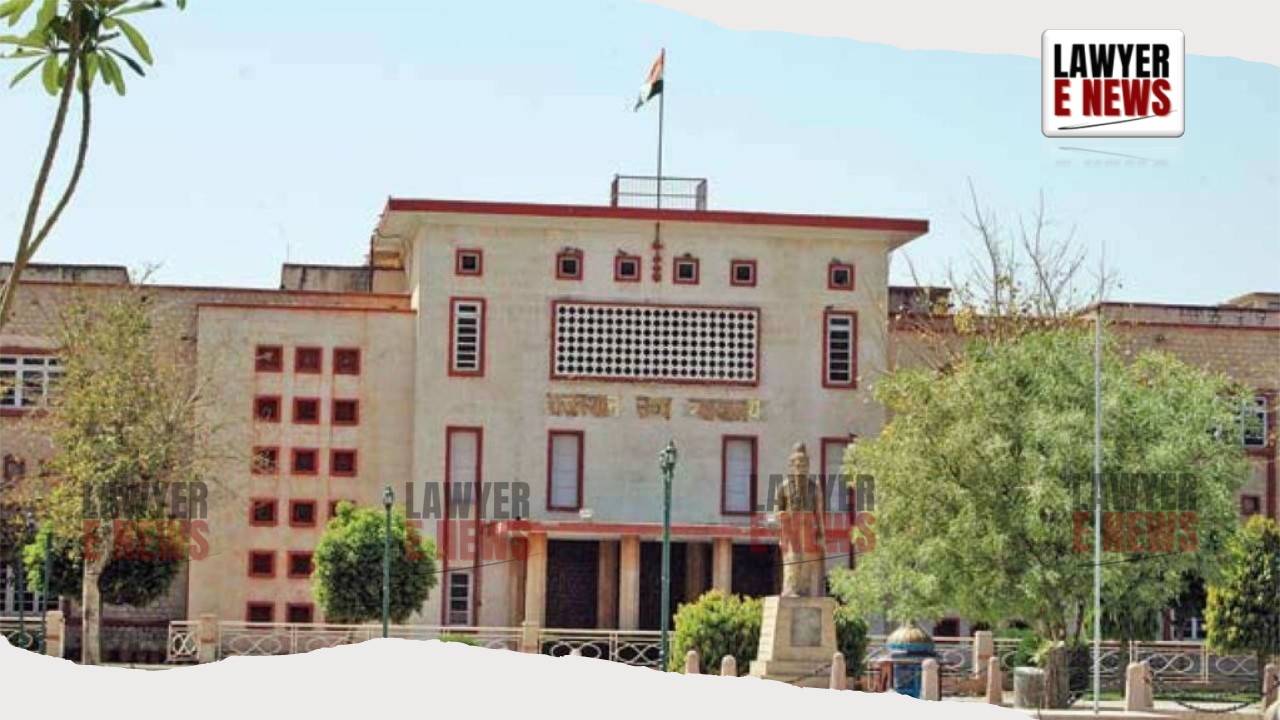-
by Admin
15 February 2026 2:36 AM



Rajasthan High Court, in a significant ruling in District Cricket Association, Hanumangarh & Ors. v. Registrar, Cooperative Societies & Ors., addressed the legality of the removal of an election officer under Rule 11 of the Rajasthan Sports (Registration, Recognition, and Regulation of Associations) Rules, 2004. The Court quashed the May 24, 2024 order of the Deputy Registrar, Cooperative Societies, which had removed the original election officer, Surja Ram Bishnoi, and replaced him with Manju Saharan to conduct the District Cricket Association's elections. The Court ordered fresh elections to be conducted under Bishnoi's supervision, effectively nullifying the elections held by both the removed and newly appointed election officers.
The dispute arose when the Deputy Registrar, Cooperative Societies, Hanumangarh issued an order on May 24, 2024, removing the election officer appointed by the District Cricket Association and replacing him with a new officer, citing concerns about the venue and address for objections. The petitioners, District Cricket Association, Hanumangarh and Manish Kumar Dharnia, challenged the removal on grounds of jurisdiction, violation of natural justice, and arbitrary exercise of power under Rule 11 of the 2004 Rules, arguing that Rule 11 did not apply to subsequent elections held under Section 13 of the Rajasthan Sports Act, 2005, which governs regular elections.
Applicability of Rule 11 to Subsequent Elections: Petitioners argued that Rule 11 applied only to first-time elections under Section 26 of the Act and not to subsequent elections under Section 13, which are to be governed by the Association’s by-laws. The State countered by invoking the doctrine of casus omissus—claiming that the lack of similar provisions for subsequent elections was an inadvertent legislative omission that should be filled by the Court.
The Court observed that Rule 11, though originally intended as a transitional provision for first elections, could be applied to later elections to avoid “absurdity and chaos.” It noted that the absence of corresponding rules for elections under Section 13 was a legislative gap that the Court could fill. Hence, Rule 11 would be read as applicable to all elections under the Act, including those held under Section 13.
Violation of Natural Justice: The petitioners claimed that the May 24, 2024 order was passed without providing notice to the election officer or affording him an opportunity to be heard, violating the principles of natural justice. Although Rule 11(7) does not explicitly mandate notice, the Court held that natural justice required that a notice be issued, and failure to do so rendered the Registrar's actions arbitrary and violative of Article 14 of the Constitution.
Doctrine of Casus Omissus Applied to Rule 11: The Court adopted the doctrine of casus omissus, holding that the absence of rules for subsequent elections was an inadvertent legislative gap. To prevent absurd results, the Court ruled that Rule 11 would be read as applicable to elections under Section 13 as well as Section 26. The Court stated, “Section 13 shall be deemed inserted and read along with Section 26 of the Act wherever it occurs in Rule 11 of the Rules of 2004.”
Removal of Election Officer Unjustified: The Court found that the grounds for removing Surja Ram Bishnoi—such as the selection of a private school (Virasat Vidhyapeeth) as a venue—were insufficient. It observed that while the venue should ideally be a public place, a private school could serve as a valid venue unless there were transparency concerns. The Registrar should have merely changed the venue rather than removing the election officer, which was beyond his jurisdiction under Rule 11(7).
Fresh Elections Ordered: Both the elections held by the removed election officer and the newly appointed officer were declared illegal, as Bishnoi should not have conducted elections after his removal, and Saharan's appointment was based on an invalid order. The Court ordered that fresh elections be conducted from the nomination stage under Bishnoi’s supervision and directed the Registrar to appoint a neutral observer.
The Court's decision reinforces the importance of adhering to statutory rules while conducting elections and upholds the principles of natural justice. By applying Rule 11 to subsequent elections, the judgment closes a legislative gap and ensures that the Registrar’s role in overseeing fair elections continues in all instances. The case highlights how courts can address legislative omissions to maintain legal coherence and fairness in governance.
Date of Decision: September 19, 2024
District Cricket Association, Hanumangarh & Ors. v. Registrar, Cooperative Societies & Ors.
